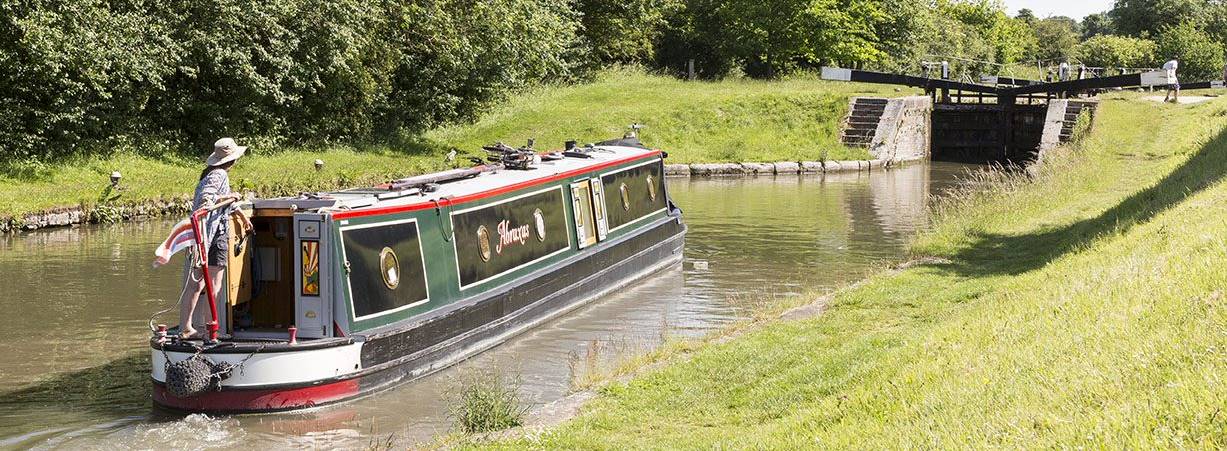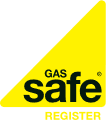A guide to gas safety on boats
Many types of boats use gas for heating and cooking. It’s a very convenient fuel but using gas on board is not without risk, which is why it’s so important to ensure any fixed gas appliance on a boat is properly installed and maintained by a qualified Gas Safe registered engineer. Discover how you can stay safe on board.
Using gas on boats
The most commonly used fuel on boats is Liquified Petroleum Gas (LPG), usually bottled propane or butane. LPG can be used for cooking as well as providing hot water and central heating, but it’s important to bear in mind that the way gas is used on board a boat is different from a fixed pipeline system used in buildings. This is because boats use bottled gas. Only appliances suitable for use with LPG and marine environment should be used on boats. The suitability of an appliance should be checked with a manufacturer before installation.
As with any unsafe gas installation, there is a risk of gas leaks, fires, explosions, and carbon monoxide poisoning. It’s crucial that any fixed gas appliances on board a boat are installed and regularly serviced by a Gas Safe registered engineer who is qualified to work not just with LPG, but also qualified to work on boats.
Related Help Topics
How to select the right competency
To find a qualified LPG boat engineer using the register, simply enter your postcode and click search. You can then refine your results by selecting ‘Liquid Petroleum Gas (LPG)’ and the relevant LPG appliance category – e.g. ‘cookers LPG in boats’ – from the drop-down list and complete your search.
How to store gas on board
LPG for use on board a boat is stored in bottles or cylinders. The size of these bottles or cylinders might vary depending on your usage requirements, but they should always be stored securely in a purpose-built boat gas locker.
Things to remember:
- Your gas locker must drain to the outside and never into a bilge
- The drain hole needs to stay clear of all blockages
- The locker requires a lid to ensure the gas bottles/cylinders are kept safely inside while preventing water from entering
- If the locker is completely airtight then you’ll need a second breather to ensure the air pressure stays the same as outside.
Your Gas Safe registered engineer will be able to ensure your LPG bottles/cylinders are being stored correctly and securely on board your boat.
Types of gas appliances on boats
The most common types of gas appliances on boats are water heaters and cookers, which are supplied by your LPG gas cylinders.
Gas water heaters for boats
LPG boilers are commonly found on boats as a source of heating and hot water for washing and cleaning. When it comes to choosing the right gas water heater for your boat, there are two main types of boilers suitable for use on board a boat.
Instantaneous water heaters
Instantaneous water heaters heat water as it flows through the boiler. This means there’s no need to wait for the tank to heat up and hot water is produced instantly.
This kind of LPG boiler is best suited to a smaller boat with a shower.
Combi boilers
You can find combi boilers made specifically for use on boats. These work in a similar way to combi boilers found in buildings and they can provide both instant hot water and central heating through radiators.
Combi LPG boilers are ideal for larger boats, including residential boats or boats which are in use year-round.
Gas cookers for boats
The type of cooker you have on board your boat will depend on the size of your galley area and frequency of use. Gas hobs for boats are ideal for dayboats and small yachts where there is limited space. You can also find hob plus grill designs, while other small boat cookers feature an oven as well.
These smaller boat cookers can be more easily fitted onto gimbals, ensuring the hob remains level.
Domestic-style marine LPG cookers can be ideal for smaller boats that see heavy galley usage, such as residential vessels, and they are large enough to cook a full roast dinner. Larger galleys might even accommodate a double-fronted range-type cooker.
It’s possible to convert many domestic cookers to LPG. Your Gas Safe registered engineer will check with the manufacturer to ensure this can be done safely.
Getting your boat gas appliances serviced
Just as you would with any gas appliance in your home, it’s really important to have the gas appliances on your boat serviced regularly by a Gas Safe registered engineer.
Take a look at the manufacturer’s guidelines to find out how often a service is recommended. If you don’t have access to these, we’d advise getting your appliances serviced annually.
What does a service involve?
Your Gas Safe registered engineer will service your gas appliances in line with the manufacturer’s guidelines, and they’ll make sure that all pipes and hoses, plus safety devices such as shut off valves, are in good working order.
Your engineer will also be able to check your LPG bottles/cylinders are being correctly stored in a secure gas locker on board your boat.
Find a registered engineer near you
Can I service my own gas appliances and equipment?
It’s important that you use a qualified Gas Safe registered engineer to make sure the gas system on board your boat is working safely and correctly.
There is one important thing you can do to ensure your gas system is safe in the meantime, and that’s using a bubble tester to detect gas leaks. Some boats will have bubble testers installed that allow boat owners to carry out a simple check for leaks on the gas installation. If this is not the case, a competent engineer can connect a bubble tester into the gas system after the gas bottle regulator in the boat gas locker.
Having a bubble tester fitted means you’ll be able to easily tell if there’s a leak in your boat’s gas system, downstream of the bubble tester, as you’ll see bubbles appearing in the glass sighting chamber.
To use your bubble tester, we recommend always following the manufacture's instructions.
As a general guide the following may apply:
- Switch off all gas appliances on board your boat but leave the gas turned on.
- Press and hold the red button down for at least 60 seconds and check the glass sighting chamber for bubbles.
- If no bubbles appear, your gas system is safe and leak-free.
If bubbles appear this means you have a gas leak and should switch off the gas supply. Contact a Gas Safe registered engineer that has competency to work on boats as soon as possible.
You can find more information on ensuring your engineer has the correct competency by viewing a short guide for boats included earlier in this article.

Safety rules for gas on boats
Having your gas system installed and regularly serviced by a qualified Gas Safe registered engineer is the best way to make sure your boat is safe for use.
Here are some other things you can do to stay safe on board:
- Don’t use portable gas heaters or gas stoves inside your boat cabin
- Keep your boat’s vents clear
- Look out for signs of unsafe gas appliances, including a floppy yellow flame, soot or staining on or around the appliance, increased condensation, or the smell of gas
Your boat is built to keep water out, but this also means it can become an effective container for gas and fumes if you have unsafe gas appliances on board.
An unsafe gas appliance can produce carbon monoxide (CO), a highly poisonous gas which results from the incomplete burning of natural gas or LPG. CO can be produced when a gas appliance has been incorrectly fitted, badly repaired or poorly maintained.
CO can be deadly and is especially dangerous because you can’t see, taste or smell it, and some symptoms mimic the effects of viruses and even a bad hangover. Find more information on what to do in a gas emergency with our guide.
Regular servicing can help ensure your appliances burn correctly, but to be extra safe from CO we recommend fitting a suitable CO alarm in your boat; this is a legal BSS requirement on all boats with accommodation spaces.
Fitting your boat’s carbon monoxide alarm
Follow the manufacturer’s instructions as closely as you can when it comes to fitting the CO alarm on board your boat. If the structure of the boat makes this challenging then we’d advise following these tips:
- In living quarters, install alarms 1-3m away from appliances
- Make sure alarms aren’t placed directly above steam or heat sources
- Fix wall-mounted alarms high up, but at least 150mm from the ceiling and ensure indicator lights are visible
- Fix ceiling-mounted alarms at least 300mm from cabin sides and bulkheads
- In sleeping quarters, place the CO alarm near the bed head - the ‘breathing zone’
- Before installing an alarm, ensure the crew can hear it from any position in the boat. If not, you’ll need to install further alarms
Gas regulations for boats
Getting a qualified Gas Safe registered engineer to service the gas system on board your boat is the only way you can be sure your boat is safe to use.
Once your engineer has confirmed that your boat’s gas system is functioning safely and effectively, you’ll be issued with a boat gas safety certificate, which many insurers will ask to see before they can insure your boat for hire.
If your boat is used for hire, then it’s a legal requirement that you have an annual gas safety check performed by a qualified Gas Safe registered engineer. For further information on BSS examinations please refer to their website
Yes, all fixed gas appliances aboard your boat will need servicing by a Gas Safe registered engineer qualified to work with not just LPG but with gas appliances on boats.
You’ll need to check that your Gas Safe registered engineer is competent to work with LPG and with gas on boats. For more information:
To find a qualified LPG boat engineer using the register, simply enter your postcode and select ‘LPG/Cylinder’. Then select ‘Boats’ from the drop-down list and complete your search.
It’s strongly advised to fit a suitable CO alarm on you boat based on the manufacturer’s guidelines. We’ve provided more details on this in our article above including some areas where the CO alarm may be best positioned.
Yes, there is a legal requirement for you to have an annual gas safety check by a competent Gas Safe registered engineer.
Featured Content
Carbon Monoxide Poisoning
Carbon monoxide or CO poisoning is one of the major risks of an unsafe gas appliance. But what is it and how can we guard against it? Find out more.
Gas Safety Certificates & Records
What’s the difference between a Building Regulations Compliance Certificate and a Gas Safety Record, and when do you need them? More info here.
Find & Check An Engineer
Looking to find a Gas Safe registered engineer? Find one in your local area or check their details.



